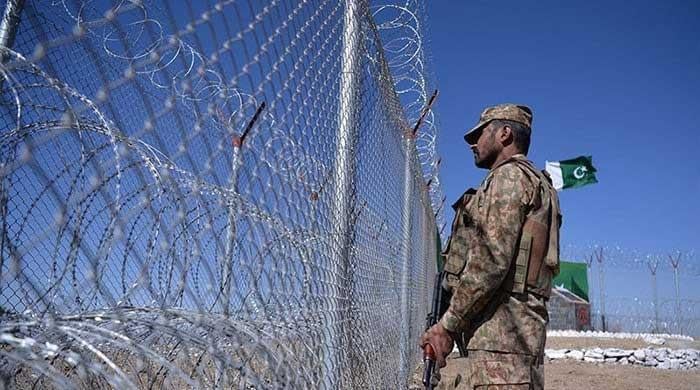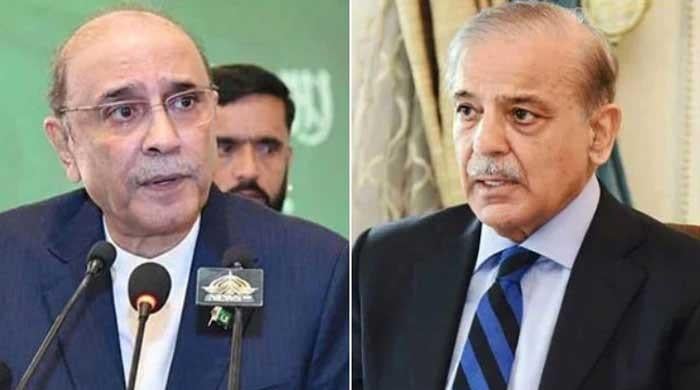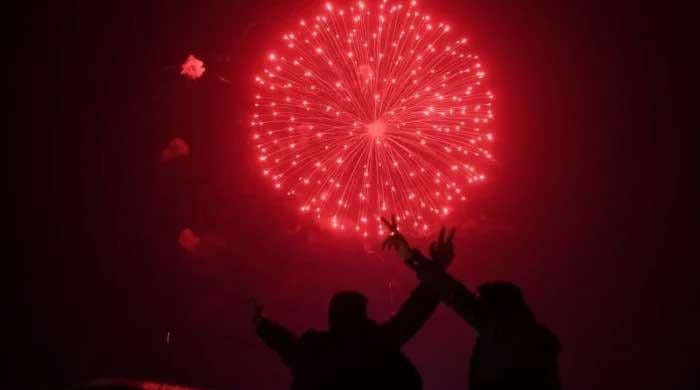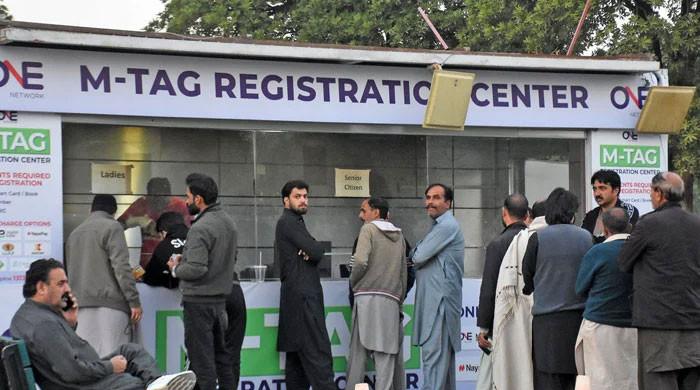PML-N files review petition against SC's reserved seats ruling
Review petition asks number of questions including whether SIC should be granted the reserved seats
July 15, 2024
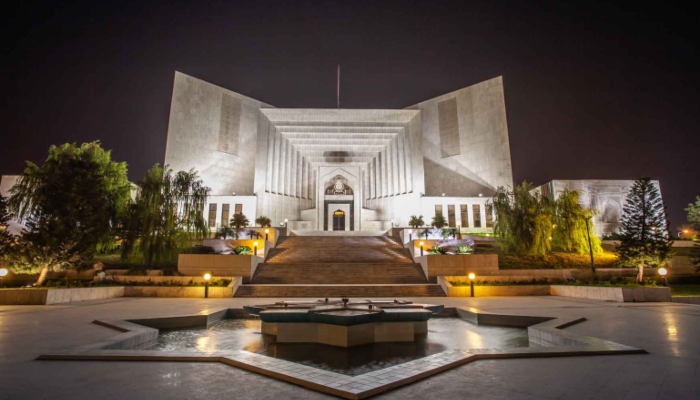
- Plea prays to court to suspend its ruling on reserved seats.
- It claims apex court’s verdict is silent on some points.
- Petition names 11 respondents including SIC, PPPP, and others.
ISLAMABAD: The Pakistan Muslim League-Nawaz (PML-N) on Monday filed a review petition in the Supreme Court against reserved seats verdict that declared the Pakistan Tehreek-e-Insaf (PTI) eligible for the reserved seats for minorities and women.
The ruling party has nominated 11 respondents in the plea including the Sunni Ittehad Council (SIC) and its chairman Hamid Raza, praying the court to suspend its ruling dated July 12, 2024, on the reserved seats.
The petitioner claimed the apex court’s verdict was silent on some points.
The review petition asked a number of questions including whether the SIC should be granted the reserved seats.
It questioned if reserved seats could be granted to a political party who had not submitted a party list within the prescribed time, whether a political party can be given reserved seats whose candidates have not even filed nomination papers within the time provided by the Election Commission of Pakistan and if independents could even join a political party which did not win a single general seat in parliament.
The plea also raised question if the seats could be left vacant or have to be distributed amongst the political parties contesting for the said seats.
The petition has been filed in response the apex court ruling last week, that declared the PTI eligible for the allocation of reserved seats.
The decision not only paved the way for the PTI's return to the parliament, which was kicked out of the February 8 polls owing to the ECP's December 2023 ruling, but has also increased the pressure on the coalition alliance by changing the composition of the National Assembly.
The 8-5 majority verdict declared that the lack or denial of an election symbol does not in any manner affect the constitutional or legal rights of a political party to participate in an election, whether general or by, and to field candidates and that the commission is under a constitutional duty to apply all statutory provisions accordingly.
A timeline of reserved seats saga
The reserved seats issue first emerged after over 80 PTI-backed independent candidates emerged victorious in the February 8 elections and subsequently joined the SIC in a bid to claim seats reserved for minorities and women.
The SIC then approached the ECP on February 21 seeking allocation of reserved seats. However, the PTI suffered a setback after the electoral body, citing the party's failure to submit its list of candidates, denied allocating the reserved seats to the SIC via its 4-1 majority verdict on March 4.
In the verdict, the ECP said it extended the deadline to submit a priority list for the reserved seats of women, and the SIC, before the February 8 polls, did not submit the required list which was "mandatory".
The electoral body's verdict cited Article 51(6), saying the article clearly stated the reserved seats would be allocated to the political parties who contested elections and won general seats based on a "proportional representation system".
While rejecting the plea of SIC, the ECP accepted applications of the opposing parties and decided that the seats in the National Assembly would not remain vacant and be allocated by a proportional representation process of political parties on the basis of seats won by political parties.
The electoral body said the SIC cannot claim the share in the reserved seats for the women "due to non-curable procedural and legal defects and violations of mandatory provisions of the Constitution".
The party then approached the PHC on March 6, which upheld the electoral body's decision on the matter in its March 14 ruling.
Subsequently, on April 2, the SIC moved the SC seeking to set aside the PHC verdict and the allocation of 67 women and 11 minority seats in the assemblies.
The allocation of reserved seats holds significance as the PTI-backed independent candidates, who make up the majority of the opposition benches, lost as many as 77 reserved seats in NA and provincial assemblies due to the PHC's verdict.
It is to be noted that the PHC verdict allowing the allocation of reserved seats to the ruling coalition comprising the Pakistan Muslim League-Nawaz (PML-N), the Pakistan Peoples Party (PPP) and others, led to them securing a two-thirds majority in the National Assembly.
In the National Assembly, the PML-N was allocated 14 seats and the PPP and the Jamiat Ulema-e-Islam-Fazl (JUI-F) were given five and three additional seats, respectively.
The move propelled the PML-N's number in the lower house to 123, and PPP to 73, whereas the PTI-backed SIC number stood at 82.
In the Khyber Pakhtunkhwa Assembly, the JUI-F was given 10 seats, the PML-N was allocated seven, whereas the Awami National Party got one reserved seat.
In Punjab, the PML-N got 23, the PPP secured two, whereas the Istehkam-e-Pakistan Party (IPP) and the Pakistan Muslim League-Quaid (PML-Q) got one reserved seat each.
Meanwhile, in Sindh Assembly, the PPP and the Muttahida Qaumi Movement were allocated two and one seats, respectively.
A three-member SC bench comprising Justice Mansoor, Justice Minallah and Justice Mazhar, took up the SIC's plea on June 6 and suspended PHC's verdict as well as the ECP's decision on the said issue.
Following the SC's decision to suspend the ECP order, the coalition lost its two-thirds majority in the lower house.
A 13-member full-court bench, constituted on May 31, then took up the issue and held a total of nine hearings on the crucial matter — the first hearing being conducted on June 3.
The SIC's plea, however, was opposed by both the federal government and the electoral body.




